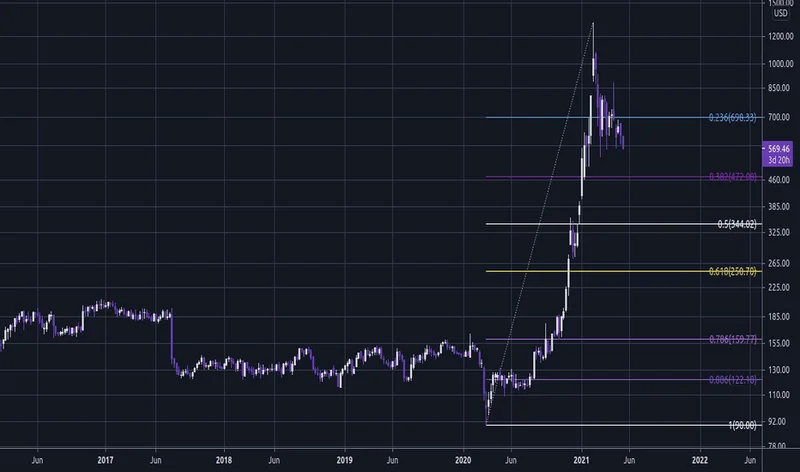Nvidia: GPU Depreciation and China Export Curbs
Title: AI's Insatiable Appetite: How Nvidia's China Chip Ban Could Backfire
The race to dominate the AI landscape has a voracious appetite, one that seemingly can't be sated. Nvidia, the current king of the GPU hill, finds itself caught in a geopolitical tug-of-war, specifically concerning exports to China. The proposed GAIN AI Act, supported by tech giants like Amazon and Microsoft, seeks to prioritize domestic orders for advanced processors, effectively limiting China's access. But will this strategy achieve its intended effect, or will it inadvertently fuel a different kind of innovation?
The GAIN AI Act: A Closer Look
The GAIN AI Act, short for Guaranteeing Access and Innovation for National Artificial Intelligence, aims to secure America's lead in AI by ensuring domestic companies get first dibs on advanced AI chips. Microsoft has publicly endorsed the legislation, and Amazon, Microsoft back effort to curb Nvidia's exports to China, WSJ reports is reportedly offering its support behind closed doors. The rationale is clear: limit China's access to cutting-edge AI capabilities, thereby curbing its potential military applications.
But here's where the analysis gets tricky. As reported, White House officials, including AI czar David Sacks, have cautioned that the Act's impact may be limited, given existing Commerce Department regulations on chip exports. This raises a critical question: Is the GAIN AI Act a necessary safeguard, or is it largely symbolic, adding another layer to an already complex regulatory framework? Perhaps the Act is not needed, but sends a strong message that the US is serious about AI dominance.
Nvidia itself has voiced concerns that the Act could stifle global competition. This isn't just corporate whining; restricting access to advanced chips could incentivize other countries, particularly China, to develop their own alternatives. Innovation often thrives under constraint.
The Inevitable Workaround
History offers plenty of examples of nations overcoming technological barriers. Denying China access to Nvidia's top-tier GPUs might seem like a strategic win, but it could spur massive investment in indigenous chip design and manufacturing. We're already seeing signs of this, with Chinese companies reportedly exploring alternative architectures and forging partnerships to circumvent US restrictions.

What if China poured resources into developing fundamentally different AI hardware, perhaps based on optical computing or neuromorphic chips? Such a shift could disrupt the existing market dynamics and potentially leapfrog current GPU-based systems in certain applications.
And this is the part of the analysis that I find genuinely puzzling. The assumption seems to be that Nvidia's current dominance is unassailable. But technology is never static. A determined push by China, fueled by necessity and backed by substantial resources, could reshape the competitive landscape in ways that are difficult to predict.
We also need to consider the potential for unintended consequences within the US. Prioritizing domestic orders could create bottlenecks and delays for smaller AI startups, potentially hindering innovation and slowing down the overall pace of AI development. The Act, while intended to bolster American AI, could inadvertently create a two-tiered system, favoring established players with existing relationships and access to resources.
A Pyrrhic Victory?
The GAIN AI Act reflects a legitimate concern about China's growing technological prowess. But the assumption that limiting access to Nvidia chips will decisively cripple China's AI ambitions seems overly simplistic. Historically, technological embargoes have often backfired, spurring innovation in the targeted countries and ultimately undermining the embargoing nation's long-term competitive advantage. This act may accelerate China's domestic chip production.
It's a Gamble With Unpredictable Odds
Limiting Nvidia's exports to China might offer a short-term advantage, but it could also trigger a long-term shift in the global AI landscape. The race for AI supremacy is a marathon, not a sprint, and technological barriers rarely remain impenetrable forever. The real question is whether the GAIN AI Act will ultimately strengthen America's position or simply accelerate the rise of a new competitor.
Related Articles
mstr stock: Down 40% – Should You Buy, Sell, or Just Run?
Is MicroStrategy's Bitcoin Gamble Finally Cracking? So, MicroStrategy, or Strategy, or whatever they...
Avelo Airlines Flights: Routes, Cancellations, and What's Behind the Changes
Avelo's Expansion: A Risky Bet on Secondary Markets? Avelo Airlines is making some aggressive moves,...
MicroStrategy (MSTR) Stock: Analyzing the Bitcoin Correlation and Its Price Action
The recent price action in Strategy’s stock (MSTR) presents a fascinating case study in market perce...
MP Materials Stock Analysis: The Data Behind the 'Hold' Rating
The stock chart for MP Materials (MP) over the last 90 days looks less like a valuation curve and mo...
US Approves Nvidia Sales to UAE: An Analysis of the G42 Deal and Its Geopolitical Implications
It’s a familiar ritual for anyone in this business. The pre-market hum, the first cup of coffee, and...
Scott Bessent vs. an 'Unhinged' Chinese Official: The Full Story and Why It's a Bigger Deal Than You Think
So, let me get this straight. The entire global economic system, the intricate web of supply chains...





